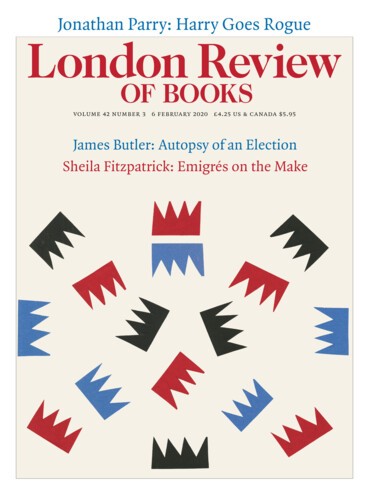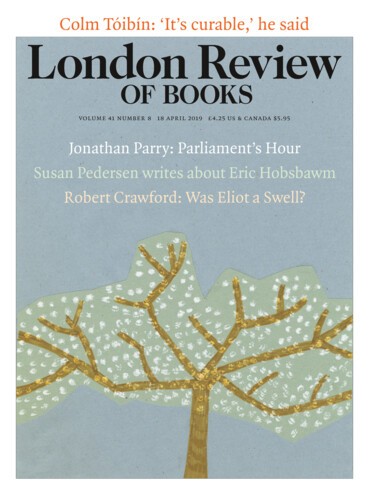Managing the Nation
Jonathan Parry, 18 March 2021
Every step of the Brexit saga has been dictated by the Conservative Party’s struggle to save itself: to prevent voters defecting to the more uncompromising Ukip, and then to check the paralysing internal divisions that arose after the party realised the issue would not go away. It’s pointless to complain that its tactics have put ‘party before country’; most party members do not see the distinction. In fact, they are not good at making distinctions more generally. The Brexiters never resolved the fundamental tensions within their project, between global free-market aspiration and protective nativism, and between an outward-facing nationalism and an internal unionism. They also refused to tolerate Theresa May’s attempts, as a cautious Remainer but devoted party loyalist, to paper over the cracks by making careful and defensive policy compromises, based around membership of the customs union. The aim was to save the union with Northern Ireland, and as many trade benefits as were compatible with leaving the single market. Johnson has chosen instead to paper over the cracks by denying that most of the difficulties exist, except at a petty technical level which time will resolve.





